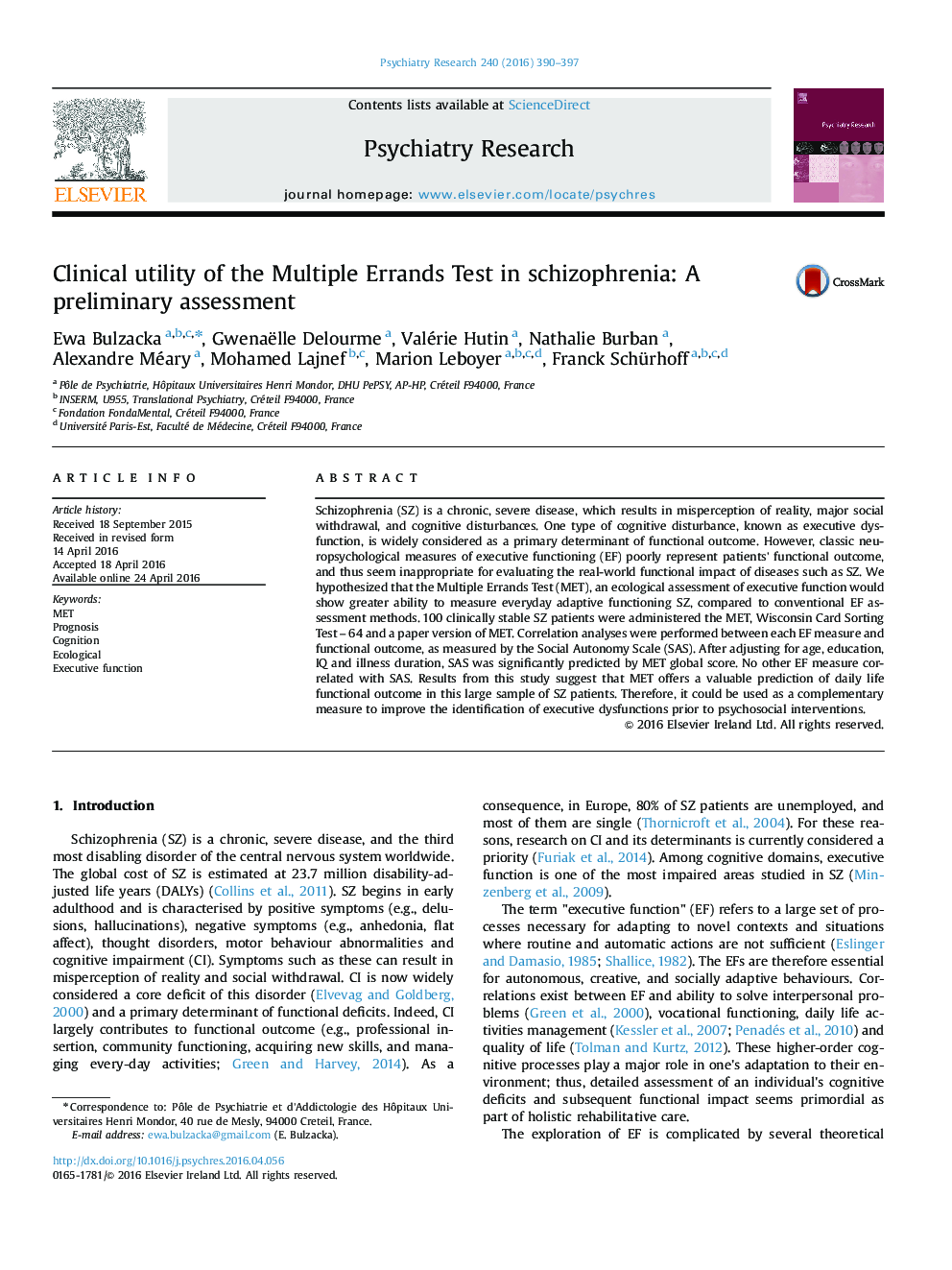| Article ID | Journal | Published Year | Pages | File Type |
|---|---|---|---|---|
| 6813538 | Psychiatry Research | 2016 | 8 Pages |
Abstract
Schizophrenia (SZ) is a chronic, severe disease, which results in misperception of reality, major social withdrawal, and cognitive disturbances. One type of cognitive disturbance, known as executive dysfunction, is widely considered as a primary determinant of functional outcome. However, classic neuropsychological measures of executive functioning (EF) poorly represent patients' functional outcome, and thus seem inappropriate for evaluating the real-world functional impact of diseases such as SZ. We hypothesized that the Multiple Errands Test (MET), an ecological assessment of executive function would show greater ability to measure everyday adaptive functioning SZ, compared to conventional EF assessment methods. 100 clinically stable SZ patients were administered the MET, Wisconsin Card Sorting Test - 64 and a paper version of MET. Correlation analyses were performed between each EF measure and functional outcome, as measured by the Social Autonomy Scale (SAS). After adjusting for age, education, IQ and illness duration, SAS was significantly predicted by MET global score. No other EF measure correlated with SAS. Results from this study suggest that MET offers a valuable prediction of daily life functional outcome in this large sample of SZ patients. Therefore, it could be used as a complementary measure to improve the identification of executive dysfunctions prior to psychosocial interventions.
Related Topics
Life Sciences
Neuroscience
Biological Psychiatry
Authors
Ewa Bulzacka, Gwenaëlle Delourme, Valérie Hutin, Nathalie Burban, Alexandre Méary, Mohamed Lajnef, Marion Leboyer, Franck Schürhoff,
